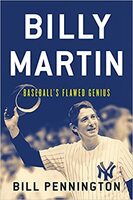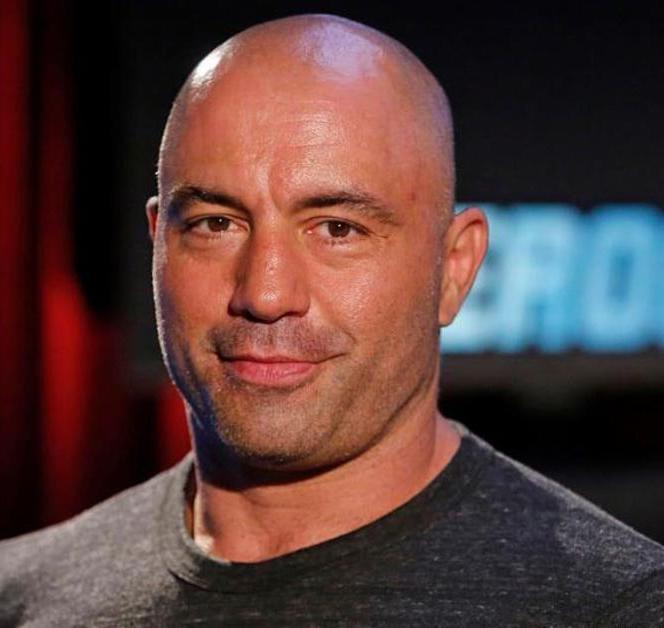Bill Pennington
BILL PENNINGTON is an award-winning sportswriter for The New York Times. A former syndicated columnist, Pennington was a beat writer who covered much of Billy Martin's tenure with the New York Yankees. A 14-time finalist and six-time winner of the Associated Press Sports Editors annual writing award, Pennington lives with his family in Warwick, New York. This is his fourth book.
A CONVERSATION WITH BILL PENNINGTON
Why did you decide to write this biography about BILLY MARTIN?
As a young reporter in the mid-1980s, I was a traveling beat writer with the Yankees and covered two seasons when Billy was manager. I knew him well, and even 25 years after his death, I always considered him one of the most magnetic, entertaining, sensitive, humane, brilliant, insecure, paranoid, dangerous, irrational and unhinged people I had ever met. He was a completely unforgettable character and personality and I always wondered if I would write a biography of him. It seemed like his story needed a little time to percolate and to find its place in history.
Finally, with the perspective of time – and a little nudging from my editor – I knew it was time to tell the whole story of a complex, flawed, renowned, and yet largely misunderstood, figure in American sports.
What was your relationship with Billy Martin?
For years, we were together for hours daily before and after games, even longer during spring training or on the road when I accompanied Billy on countless team planes or buses (beat writers traveled with the pro teams in those days). He and I were friendly, albeit more like business associates. I knew his many moods, his pet peeves and little known interests, like Western-themed novels and Civil War history.
What research did you perform for the book?
I spent nearly three years researching the book. In addition to persuading each of Billy’s four wives to communicate with me – something no other journalist has done for a book or article -- I interviewed nearly 250 people, going as far back as Billy’s childhood friends from the 1930s in Berkeley, California. I spoke with his minor league teammates from the 1940s and dozens of his teammates and enemies when he was a star player for the Yankees in the 1950s. I retraced each of his managerial stops from Denver to Minnesota to Detroit to Texas to New York to Oakland and back to New York during four more stints in the dugout. I conducted dozens of interviews with players, coaches, rivals, umpires and team executives in each of those cities.
I benefitted from the cooperation of Billy’s only son, Billy Joe, and Billy’s sisters, brother and many cousins. Moreover, I returned to the site of his fatal 1989 auto accident and talked with dozens of people living in upstate New York – like Billy’s housekeeper and neighbors – who spent ample time with him in his final days.
The baseball community is a large but tight circle. I lived within it for two decades before branching out to cover other sports. But it was easy to re-connect with the hundreds who knew Billy, including those who loved him and those who hated him. Time had only made their stories and their voices richer.
How is this biography different from others about Martin?
Most biographies of Billy Martin were written in the late 1970s with the last biographies of him published shortly after his 1989 death. They focused on the sensationalistic aspects of his life and death and helped contribute to a caricature of a man whose public persona came to be defined only by his excesses.
They were, understandably, history’s first draft of Billy Martin’s life, but to me, they painted an incomplete portrait.
With the perspective of more than a quarter century of time, most everyone I talked to – even his adversaries – offered nuanced reflections and a deeper understanding of Billy’s numerous gifts as well as his many failings. There was greater empathy for what Billy achieved, especially given his shantytown upbringing. Interview subjects saw Billy Martin as someone who reflected America in the middle of the 20th century – a man of his times, all of them, from the 1940s to 1980s.
Billy Martin’s blemishes and extremes have been well documented – as they are in my book, too. Someone said that Billy could delight and disgust in one five-minute conversation and that’s probably true. There is no escaping his drinking problem and inclination to punch first and ask questions later. But my goal was to not only focus on those well-known incidents. I wanted to elucidate the whole person including his accomplishments, complexities and the genius of his craft.
Moreover, as an eye-witness to the most noteworthy events in the final six years of Billy’s life, I had the advantage of seeing and experiencing the complete Billy Martin story. In the past three years, I worked to shine a light on all of it.
Did you learn anything new or make any surprising discoveries while writing the bio?
I uncovered a detailed account of the secret meeting between George Steinbrenner and Billy Martin at the old Yankee Stadium in the fall of 1989 during which Steinbrenner explained his plan to re-hire Billy for a sixth time in 1990. Billy died just months later.
His widow, Jill Martin, who has spurned all interviews for 25 years, agreed to several interviews with me and for the first time described in detail the final moments of Billy’s life, before and after the auto accident that caused his death. Jill also discussed the many controversial facets of her life with Billy. So did hundreds of ex-players and coaches, many of whom had not spoken about Billy in the past.
I conducted in-depth interviews with Hall of Fame managers Tony LaRussa, Earl Weaver and Tommy Lasorda helped detail the baseball genius of Billy Martin and revealed their desire to start a campaign to have Billy inducted into the Baseball of Hall of Fame. Said LaRussa of Martin: “Without reservation I would call Billy the most brilliant field manager I ever saw. He was unmatched. None of us felt up to him.”
What do you hope readers take away from your book?
I want readers to see past the caricature that has shrouded Billy Martin’s legacy for more than two decades. Billy, if he is brought up at all, is now visible only in five second video clips on ESPN, which show him kicking dirt on umpires or fighting in a dugout with Reggie Jackson. Obviously, all those things, and many other transgressions, happened.
But this is also a player who was considered the unofficial captain of five World Series championship teams with the Yankees in the 1950s. As a manager he had often had no peer, compiling a winning percentage (.553) that is higher than 13 managers currently in the Baseball Hall of Fame, including Tony La Russa, Joe Torre, Casey Stengel, Tommy Lasorda, Sparky Anderson and Whitey Herzog.
He won everywhere he went and managed his entire 16-year career before baseball expanded the postseason to include wild card teams. Five of his teams went to the playoffs but six more would have qualified for the postseason if the current wild card format had been in place.
He was an irresistible national personality, someone who was impossible to ignore. He ran with Frank Sinatra’s Rat Pack, dated starlets and was a regular on TV variety shows. He was a sentimental, humorous, generous man who also went through life with fists clenched because of the societal inequities he experienced in a hardscrabble life. He was simultaneously complex, fascinating and loyal and distrustful, apprehensive and suspicious. He was the hero, the antihero, and the alter ego – a combination of all three – for several generations of American sports fans.
It is sad to me that over the years Billy Martin life has been confined by narrow definitions. The broad picture should instead show the Billy Martin whose common-man vulnerability made him beloved by millions of fans. He was unforgettable and controversial, someone who had many enemies but more friends. His was a full life of triumph, tragedy, rebirth, disappointment and redemption. Most of all, Billy Martin was a man of accomplishment who nonetheless failed repeatedly, a recurring rags-to-riches tale that continued to his last days. His is a great American story.
What are you working on now?
Sleeping on weekends and on vacation. Most of those days for the last three years were devoted to working on the book.
Books Bill Pennington has authored
-
Billy Martin
by Bill Pennington • April 7, 2015 • History
The definitive biography of one of baseball’s most celebrated, mercurial, and misunderstood figures
Billy Martin is a st...
When you purchase an independently ranked book through our site, we earn an affiliate commission.



